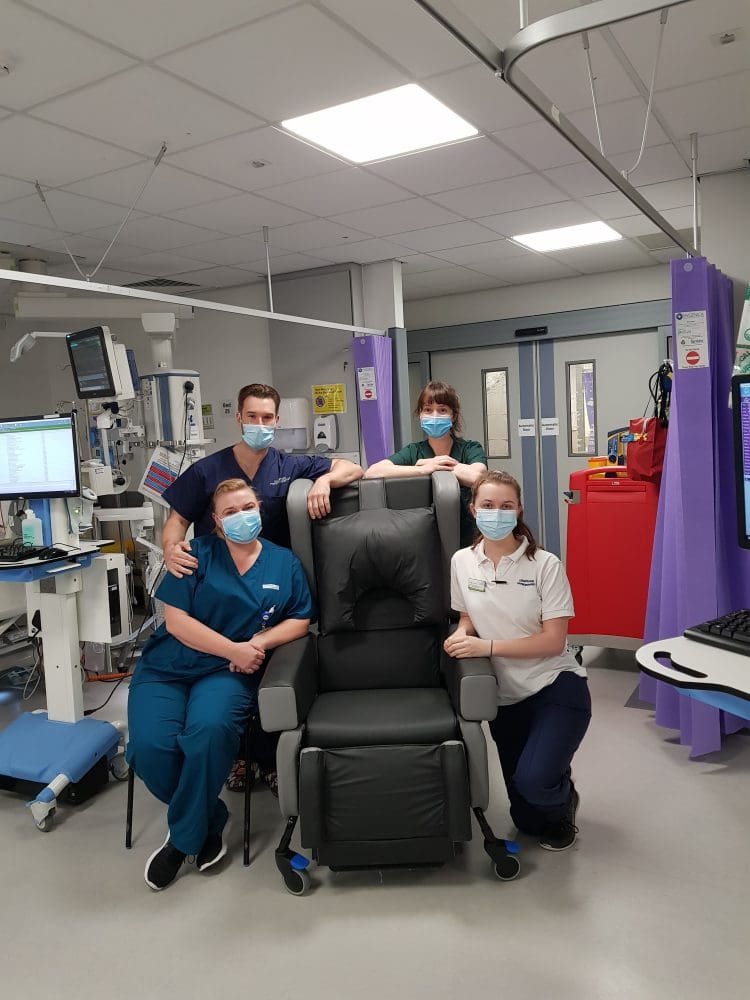The cots used on the children’s unit are around 13 years old, are worn and need upgrading. Unfortunately, with internal funding in short supply and many competing projects, the hospital are not able to replace them. This year new regulations for cots are being released, so it is expected that the new cots will be designed around childcare and handling and will make a positive difference to the safety and the comfort of the patient. They will be easy to use and maintain, helping to deliver the highest standard of hygiene, and will have special features to care for acutely ill children.
Donate now
More Projects
Woodlands Special School, Blackpool – Sensory Integration
Woodlands Special School in Blackpool caters for pupils aged 2 – 18 with severe or profound and multiple learning difficulties (PMLD).
Find out more →Royal Bolton Hospital Louby Lou
Being in hospital can be distressing, frightening and boring for kids. For many years we have funded “Magic Medic” Louby-Lou to entertain children in hospital with her immersive, colourful and vibrant clown show, performing magic tricks and getting kids singing along to popular songs. This distracts them from their treatment and helps to cheer them […]
Find out more →Stepping Hill Hospital – “Magic Medic” Louby-Lou
Being in hospital can be distressing, frightening and boring for kids. For many years we have funded “Magic Medic” Louby-Lou to entertain children’s wards with her immersive, colourful and vibrant clown show, performing magic tricks and getting kids singing along to popular songs. This distracts them from their treatment and helps to cheer them up. […]
Find out more →“The specialist treatment chairs are a new vital resource for the therapy team and nursing staff to be able to safely and comfortably sit extremely complex, dependant, critical care patients out of bed. The chairs allow us to begin the patient’s rehabilitation journey by providing appropriate postural support at the same time as pressure relief to allow the patient to build the muscle strength to hold themselves up against gravity. This allows them to begin to interact with their environment in a more normal way, enabling them to participate in meaningful activities such as meal times and activities of daily living.”
Physiotherapy Team
Critical Care Unit
Royal Preston Hospital









